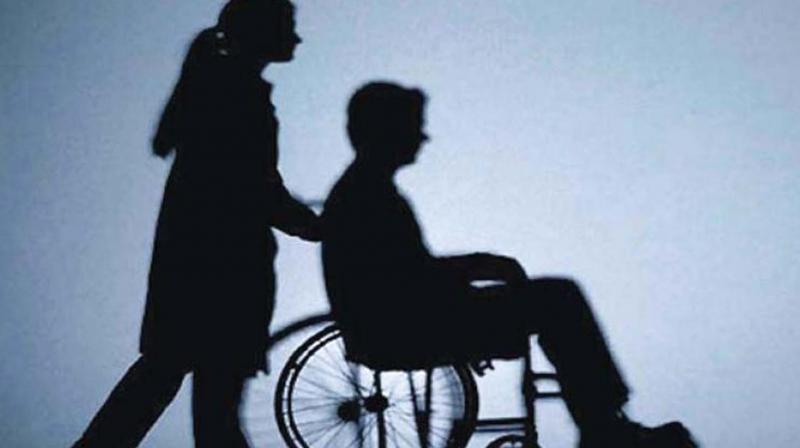No space for the differently-abled
None of the 28 bus stops studied had any ramps, which meant that they were in accessible to persons on wheelchairs.

Hyderabad: A report published by the Tata Institute of Social Sciences, Hyderabad, has exposed the insensitivity our city has towards the disabled.
The School of Public Policy and Governance examined 210 key locations commonly visited by persons with disability and found that only a handful of them had any accessibility features. The study focused on areas in Cyberabad, which has been developed fairly recently.
Dr Ipsita Sapra, the leader of the research team, says, “We were hoping that the city would have adopted a more sensitive approach in the provision of spaces without barriers, but the results have been dismal.”
The research team examined bus stops, railways stations, banks, post offices, Mee Seva Centres and schools, and it found all of them to have failed to comply with at least one of the guidelines laid down by the government.
None of the 28 bus stops studied had any ramps, which meant that they were in accessible to persons on wheelchairs.
As per the report, the bus stop located at Raheja Mindspace has air-conditioning and drinking water facilities, but no sign of provisions for accessibility.
Many public offices also lack ramps and railings, which makes it difficult for disabled persons to proceed without assistance. “We saw instances where there were ramps as well as railings, but they were obstructed by either vehicles or plants in pots. The authorities give more importance to aesthetics rather than accessibility,” says Dr Ipsita.
Two MMTS railway stations were analysed and it was found that there were gaps between the platform and the train, which are major hazards for blind passengers.
Anju Khemani, a disability consultant, says, “I have blind candidates tell me that they have lost innumerable walking sticks at railway platforms because of the gap being too wide.”
While many of the 29 private and public banks examined had accessible entrances, none of them had automatic doors.
The doors were instead found to be heavy, making it difficult for them to be pushed and pulled by persons with disability.
At places of leisure, it was found that the paths were not wide enough to be navigated by those in wheelchairs, and many of them were gravel.
M. Srinivasulu, president of the Network of Persons with Disability, says, “This fight has been going on for too long. The third largest bus station, Imlibun, is so inaccessible. It’s a human rights violation for us to have to undergo this treatment even to this day.”

